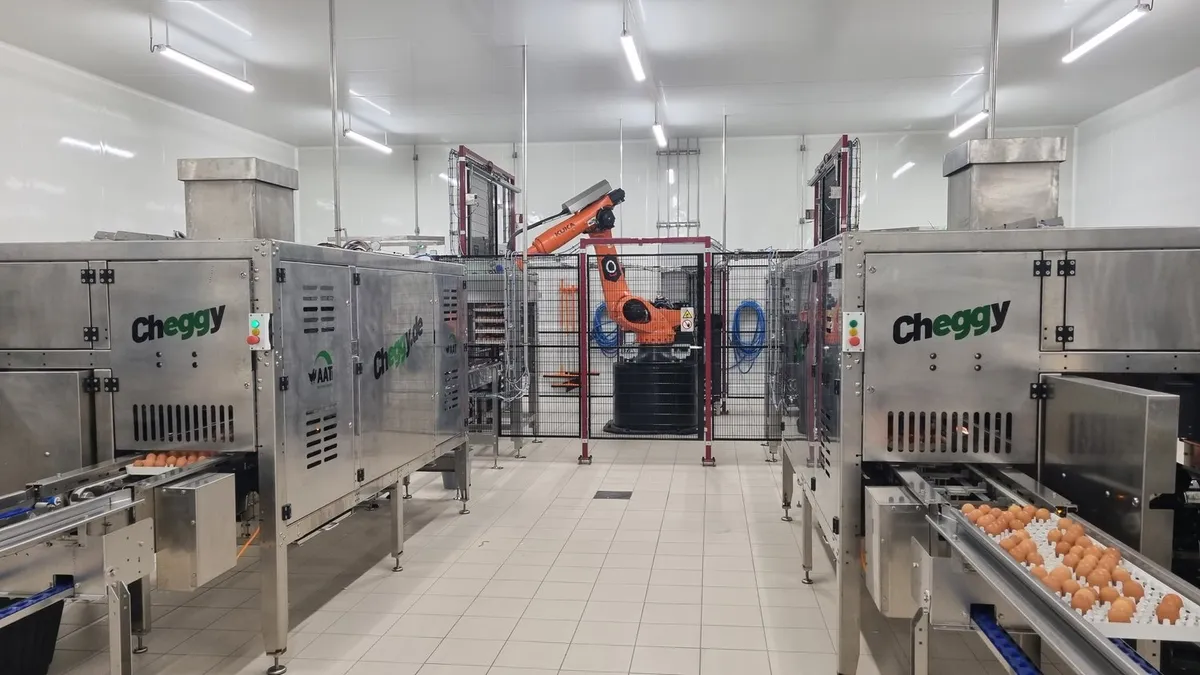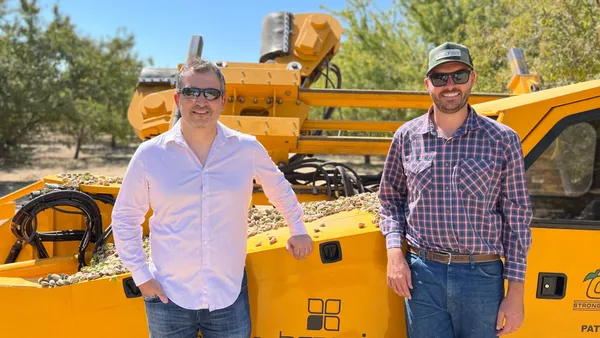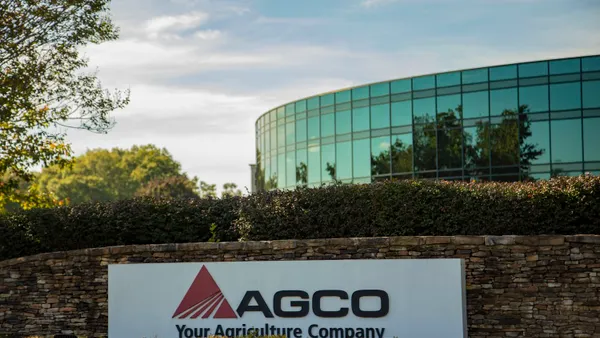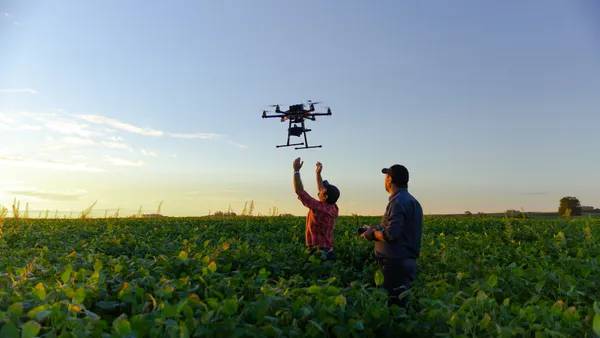Editor’s note: Agtech Seedlings is a weekly roundup of the latest in agriculture technology news, digging into venture funding, product announcements and other innovation milestones. Have news to share? Email us here.
NestFresh wants to be first to deploy in-ovo sexing
Colorado-based NestFresh plans to become the first U.S. egg producer to adopt in-ovo sexing in what would be a milestone for the technology as it slowly builds traction outside of Europe.
In-ovo sexing technology determines the sex of chickens while they're still in eggs, eliminating the need to euthanize live male chicks. Male eggs are identified, removed and destroyed before the incubation process, and the eggs' byproducts can be turned into a protein powder or incorporated into pet feed.
While the technology is widely available in Europe — where countries including Germany and Italy have banned male chick culling — it has struggled to gain a foothold in the U.S. market.
NestFresh is at least the third egg producer to commit to in-ovo sexing in the U.S., but it aims to become the first to implement the technology. The producer said it will begin deploying the technology in late 2024, with eggs expected to hit the market in mid-2025.
"Our adoption of in-ovo sexing technology marks a pivotal moment in the egg industry," Mike Sencer, NestFresh executive vice president, said in a statement. "While many companies have announced plans to adopt in-ovo sexing technologies when available, NestFresh will be the first to actually implement this technology.”
Germany-based Agri Advanced Technologies, which makes an in-ovo sexing system called “Cheggy,” said this week has reached a deal to bring its technology to two unnamed U.S. hatcheries. In addition to NestFresh, Egg Innovations and Kipster announced plans earlier this year to adopt in-ovo sexing technology.
— Sarah Zimmerman
Regenerative agriculture platform Regrow Ag lays off close to 20% of workforce
Regrow Ag, a leading provider of digital tools to advance regenerative agriculture practices in farming, has cut 19% of its workforce.
"This decision is the hardest one we have made to date, but it is unfortunately a necessary one as we continue to sharpen our ability to deliver on the opportunity before us," co-founder Anastasia Volkova wrote in a LinkedIn post.
Regrow calculates the carbon footprint of agricultural supply chains to help shape food companies' sustainability goals and simplify the management of regenerative agriculture programs. The platform has been used by industry giants including Cargill, Kellanova and General Mills, according to its site.
"For our customers and the remaining team, I have no doubt we’ll achieve everything we intend to and more for the environment while transforming the food system for future generations," Volkova wrote.
— Sarah Zimmerman
CropX expands digital integration with CNH for precision farming
Digital farm management provider CropX has struck a deal that allows precision data collected from CNH’s agricultural equipment to integrate with its agronomic platforms.
The companies said they have established a new “application programming interface” that automates the flow of data between their systems for data visualization, record-keeping, planning and variable-rate applications.
The integration aims to help farmers gain insights from their field data with an improved user experience, according to a release. The data can be used to create digital maps to monitor seeding and fertilizer activities.
“The vast amount of data collected by farm machinery is incredibly valuable,” CropX CEO Tomer Tzach said in a statement. “Bringing that data into the CropX system makes it accessible and meaningful, driving farm efficiency and sustainability.”
With this deal, CropX now has APIs with agriculture equipment giants CNH and John Deere, building toward its goal of consolidating all farm data into one user-friendly platform.
— Nathan Owens










